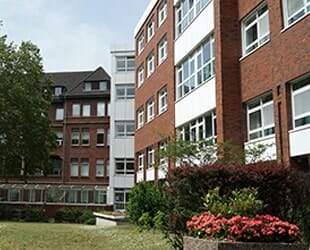An increase in blood pressure when measured at rest is above 139/89 mm Hg.
Causes
90% All patients with high blood pressure have what is called primary high blood pressure, which means that the true cause is unknown. In 10% patients, causes of high blood pressure may be found, such as kidney disease or hormonal events.
Contribute to the occurrence of high blood pressure factors such as overweight, especially cases of obesity in the abdomen, physical inactivity (lack of physical activity), smoking and hereditary predisposition.
Prevention
Through weight loss and regular exercise, a so-called lifestyle modification occurs, which in turn leads to significantly lower blood pressure readings. Whether this type of treatment for high blood pressure without medication is optimal and sufficient should be confirmed by regular monitoring.
Symptoms
High blood pressure has rather non-specific symptoms. One of the very frequent manifestations can be called headaches, but also chest pains, a state of depression and oppression, lethargy, weakness and a strongly felt heartbeat can be attributed to the symptoms of high blood pressure.
Diagnostics
Since high blood pressure combined with other risk factors can lead to what is known as coronary heart disease or stroke, it is very important to realistically assess other risk factors along with high blood pressure. To do this, in addition to a general examination and a detailed history (collecting a detailed history of the development of the disease), it is necessary to carry out the following diagnostic measures: long-term measurement of blood pressure using an ambulatory pressure measurement device that records readings for 24 hours, ultrasound examination (ultrasound) of the heart and kidneys , an electrocardiogram (ECG) under stress, and if indicated, an examination of the carotid artery to determine the presence of arteriosclerotic changes. Additionally, laboratory tests are carried out for electrolytes, a laboratory analysis of kidney function and risk factors such as, for example, cholesterol is done.
Treatment
In milder forms of blood pressure, especially until they have yet hit the “target organs”, have not led to arteriosclerosis or myocardial infarction, the so-called lifestyle modification, which lasts 6 months and comes down to normalizing weight and increasing physical activity (training at least 3 times a week).
If this event does not lead to the expected decrease in blood pressure, you have to think about the forms medical treatment. Various groups of drugs are offered here, such as beta blockers, calcium antagonists, angiotensin receptor blockers and angiotensin synthesis inhibitors with fairly equally good results.
Attention should be paid to the side effects of these drugs and / or the occurrence of possible other risk factors. For example, beta-blockers are contraindicated in chronic obstructive pulmonary bronchitis or bronchial asthma.
Photo gallery
Request appointment
Video
Useful links





